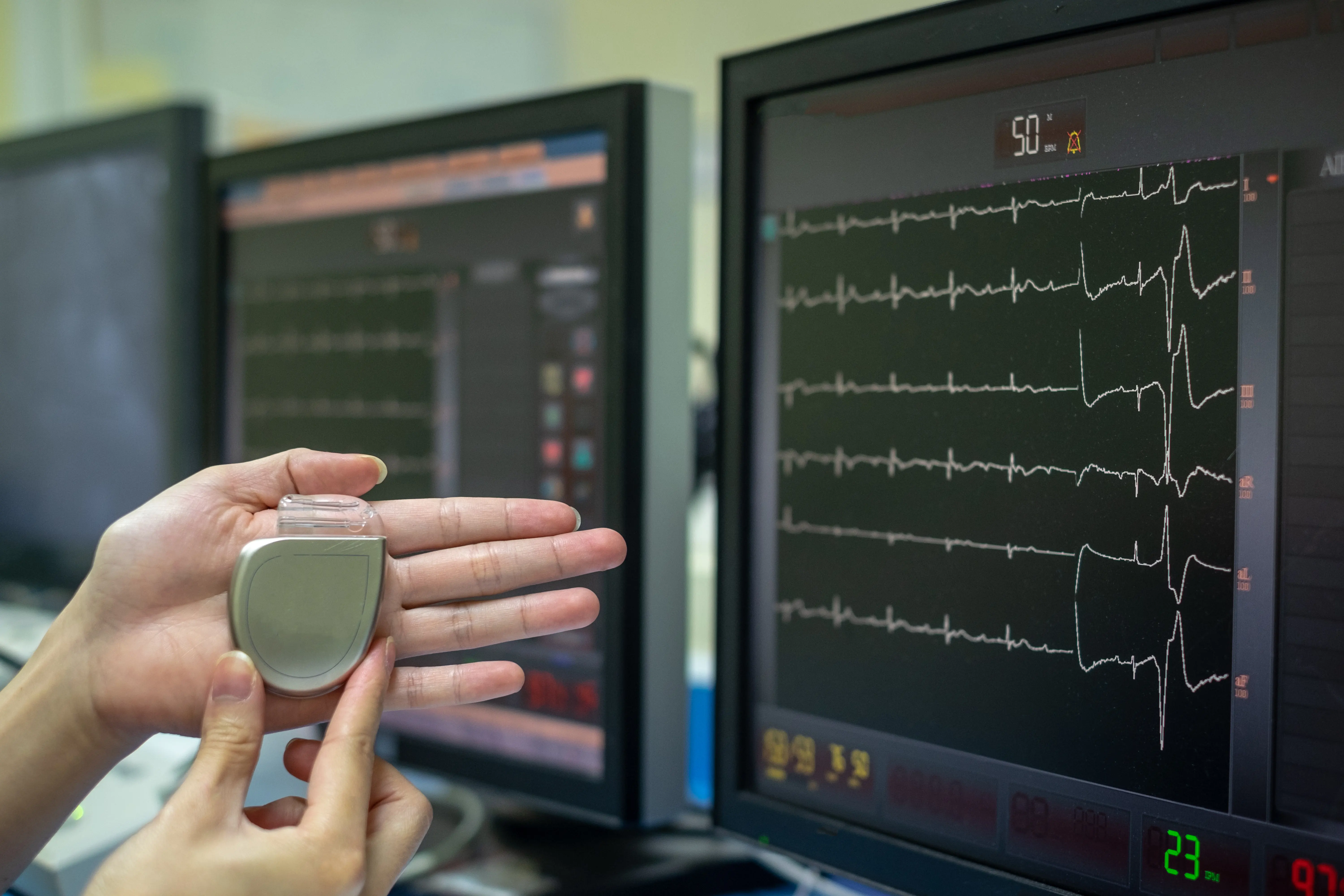Pacemaker

Pacemakers are small implantable medical devices that can work on-demand to treat certain types of abnormal heart rhythms, particularly slow heart beats, also known as bradycardia.
Conventional pacemakers use wires (leads) that run from the generator to the heart's atrium (upper chamber) and/or ventricle (lower chamber) via a vein. When the heartbeat is too slow the pacemaker delivers small electrical impulses (paces) to stimulate the heart to beat at a normal rate.
At UC San Diego, we have been implanting tiny new leadless pacemakers that can sense and pace both the upper and lower chambers of the heart. They do not require leads or an incision to create a pocket under the skin, as they are small enough to be inserted directly inside the heart.
